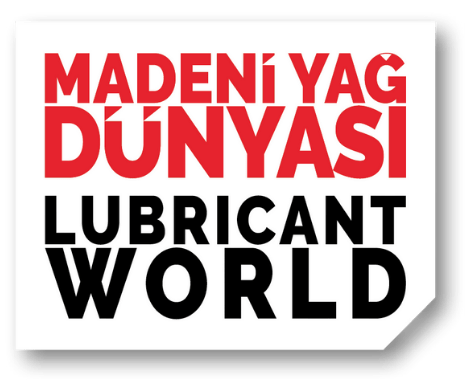In this age of technology, our shopping habits are changing. The number of lubricant companies that have taken a concrete step in e-commerce is very limited now, but the need for digitalization is knocking on the door of all brands.
The world is rapidly becoming more technological and more digital. The digitalization era that we are in invites companies to digital transformation. Actually, it is not inviting but forcing them to finalize this transition as soon as possible; because digital transformation has become an essential platform for corporations seeking to exist and secure their position in the new world. In Turkey as in the entire world, many corporations are putting effort to rapidly complete their digital transformation, and this trend increases the pressure on others which have not taken any step towards digitization.
According to the recent TurkStat data on the use of information and communication technologies in enterprises in Turkey; computer usage has increased by 8.5 percent in the last decade, reaching 97.2 percent, and Internet access has increased by 10.5 percent to 95.9 percent. These ratios show that the number of companies that do not benefit from ICT is almost negligible.
Eurostat 2017 data indicate that 97 percent of enterprises in 28 EU member states have internet access. This ratio has increased from 92 percent to 97 percent within four years, revealing that the importance of Internet access has increased rapidly.
In that vein, the efforts for e-commerce integration are also increasing. Given that the Internet has an unlimited capacity to bring together companies and customers around the world; access to the Internet is of central importance for the development of e-commerce.
Eurostat shows that the rate of e-commerce revenues of the companies, which entered into e-commerce and started to make profit by selling products online, have risen to 20 percent in their total revenues by the end of 2016, compared to an average of 14 percent in 2010.
The US Department of Commerce Census Bureau indicates that the share of e-commerce in terms of wholesale in the US was 32.4 per cent in 2016. In the manufacturing industry, the share of e-commerce is almost 65 percent.
As a result, companies that want to keep up with the pace and survive in the digital world apply to e-commerce software and tailored solution partners. Firms set up their own e-commerce sites and/or sell their products in virtual markets that bring together a large number of products. At this point, when the sales of the firms in their own website and in virtual marketplaces are compared, it is seen that the sales volume and the revenue is higher in an official website of a firm.

The most commonly used method to sell products online is e-commerce software. With this software, software companies can provide many advantages to the firms that want to sell products online. As these companies provide a ready to use e-commerce infrastructure, they are able to open an e-commerce website in a short period of time and are able to accurately identify and direct the needs of firms as they are specialized in this area. They also offer a one-stop solution for everything a firm needs to start e-commerce, including supplier integration, cargo agreements and payment solutions.
In the lubricants sector, manufacturers have accelerated their efforts to establish e-commerce sites in the last two years. In this technology age, lubricant companies are building online sales channels, feeling the need to develop digital solutions in order to gain advantage among others and not be left behind. Among the brands that have set up websites for selling products on the Internet are companies such as Shell, Castrol, Petronas and LUKOIL. Some of them have established an exclusive website for the brand, while some of them have separate websites for each distributor.
In addition to the websites of companies and/or distributors, lubricants are also sold through virtual markets. Leading marketplaces in this regard are N11, Hepsiburada and Gittigidiyor. These sites appeal to a wide range of customers and sell products in almost all segments. Mostly motor oils, and oils and special additives for individual automotive users are sold in these sites. There are a few more sites that address a niche segment of lubricants or appeal to a narrow group. In such websites, industrial oils as well as engine oils are sold, and users are offered the option of buying high volumes with barrels, drums, etc. In addition, lubricants can be bought online through automotive websites, which offer many different products for the automotive sector.
When the current situation in the market is assessed, it is observed that there is a need for a website with an expert approach to lubricants, where buyers can find automotive and industrial oils through a single channel, unlike the virtual marketplaces that have a very diverse product range. Such a site can provide both cost and time advantages for individual users, and serve as a platform purchasing officials of firms can compare the technical specifications and prices of products. In this way, a special sales channel will be created in the sector, which will eventually increase the sales volume, and a system will be established in which the consumer can benefit from many services.




